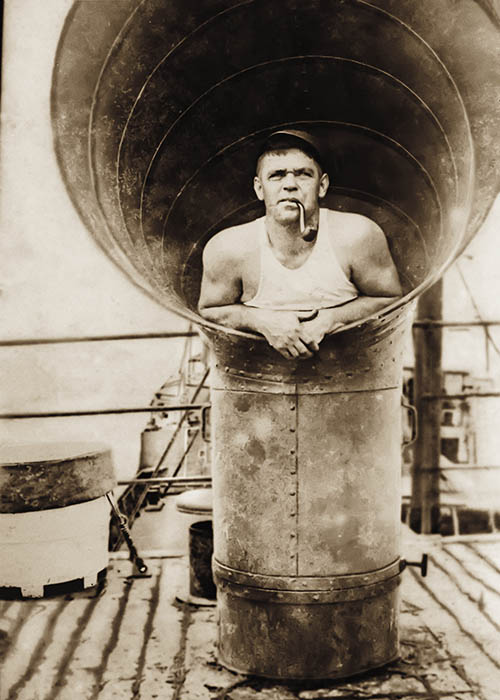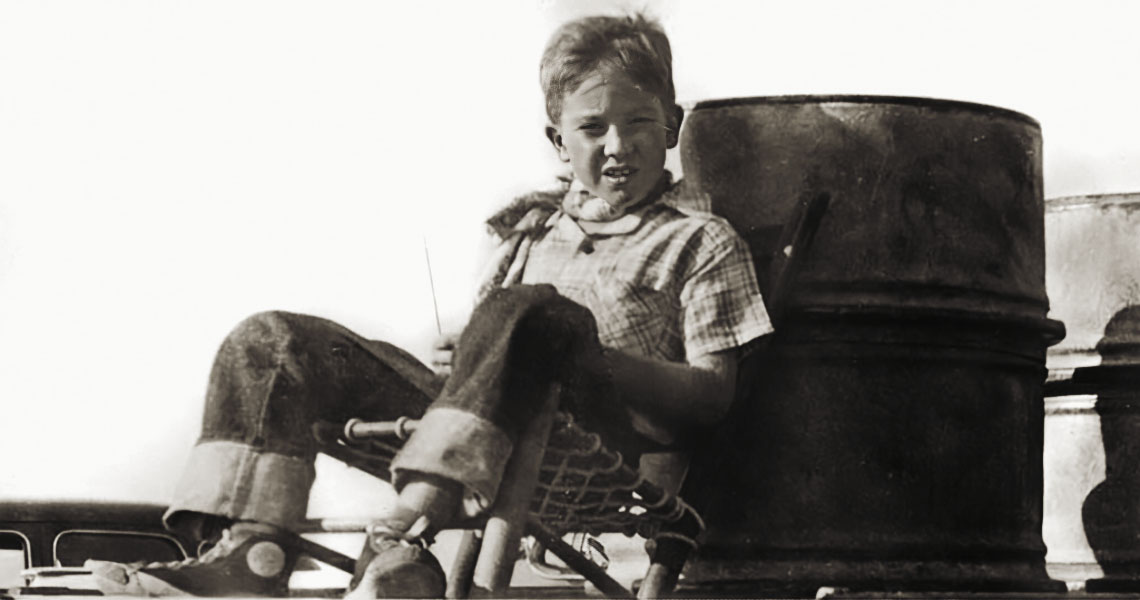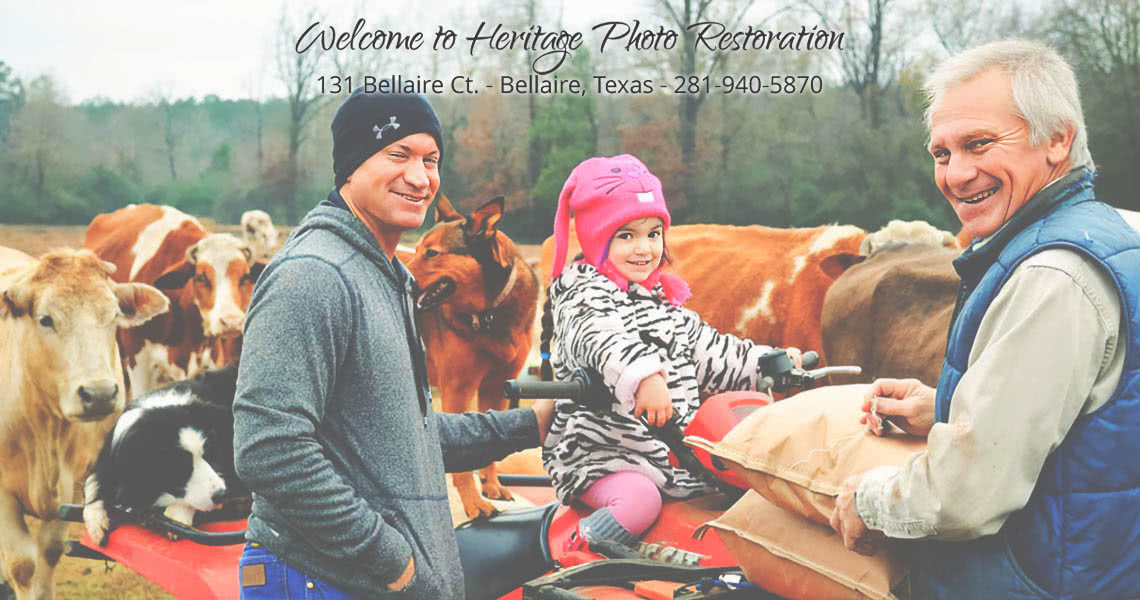
Photo Restoration Houston - Fix Old Photos - Photo Retouching Nearby
Photo Restoration Nearby
We are a family-owned and operated business that takes pride in our personalized photo restoring services. Old photographs are windows into the past that keep you in touch with old memories you will cherish for the rest of your life, so come "Restore Yesteryear" with us today.
Photo Retouching
We are passionate about what we do and love helping people bring their favorite photographs back to life, and we pay attention to each detail to give you peace of mind.
Restoring more than Photos
Our Services:
Old Photo Restoration
Damaged Photo Recreation
Vintage Photo Modernization
Art Restoration
Genealogy Research
Photo Editing & Photo Retouching
We must be honest and let you know we are not the fastest or cheapest picture repair service on the market. Instead of speed, we focus on outstanding quality that leaves you speechless. Because we want to do it right and leave a lasting impression, we must take our time to ensure we don't miss any critical details along the way.
Don't waste your money and time with services that offer a 24-hour guarantee or a "one price fits all" service. Let Heritage Photo Restoration do it the right way.
Restore Pictures - Create Gorgeous Prints
We also repair and restore vintage photos in a way that maintains their original appeal. While modern photography has bright colors and enhanced resolution, vintage pictures have a quaint appeal you can never replace. Let us make your vintage photographs look like they did on the day the photographer first printed them.
Digitize Negatives, Photos, and Slides
We can digitize your old negatives and slides. What’s more, we’ll do it at almost triple the resolution of our closest competitor and offer color-correction at no additional cost.
We also restore damaged negatives, and the result is sure to make you smile. If you have lost your photographs but still have the digital negatives, we can restore your digital negatives so that they look as bright and vibrant as the lost or damaged picture. We remove color casting, fading and other blemishes to give your negative photograph the look you have always wanted. We can even give you a hand if you have corrupt image files.
Restore Old Photos With Heritage
Water damage is typical with old pictures. As time passes, water has many chances to find its way onto your cherished photographs, and you need to address the problem to save your images. The good news is we offer Houston water-damaged picture repair services on which you can depend.
The approach we use depends on the extent of the damage, meaning we must look at your picture before offering a viable solution. We also scan the photograph before we preserve your picture. In cases of minor damage, we can use our equipment and a caring touch to dry it, but other cases require us to edit the scanned pictures to remove the water spots.
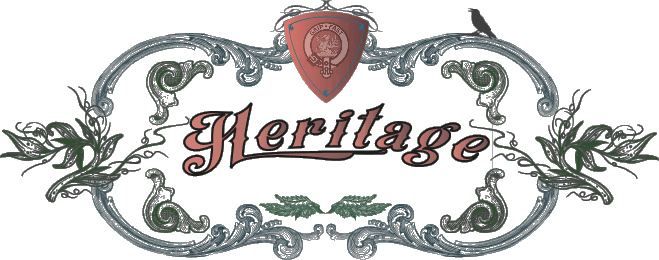
Houston's Best Photo Restoration Service
While many people ask us to restore their old and damaged photos, others have recent pictures with damage. We pride ourselves in offering custom repair and recreation services to clients in Houston and the surrounding area. Our team is more than happy to look at your damaged photos and show you what path makes the most sense for your situation and goals.
We use a unique approach based on the amount of damage and the outcome you would like to reach, ensuring your memories are in the best possible hands. Let us Restore Photos for you and make the damage disappear.
Call Us From 10:00AM - 5:00PM Central Time At +1-281-940-5870
We can answer your questions, offer advice on how to handle your damaged photographs, and discuss all the different ways Heritage can help you along the path to amazingly gorgeous Restored Portraits and other images. Make someone smile... Restore their memories!
Latest Posts From Our Blog
Restore Old Photos Now
We're From Here!
Our team is standing by to answer your questions and point you in the right direction. We can repair almost any photograph so that it looks like it did from the beginning, preserving your memories for years to come. Our team will learn about your exact needs and goals so that they can craft a solution that works for you and your long-term vision. Ask about our genealogy service so that you can learn the stories behind some of your most cherished photographs.
Getting started is easy. When you are ready to begin, send us a scanned copy of your image or a picture of the photograph. Let us know what outcome you have in mind to give us an idea of how to move forward. After reviewing your request, we let you know if we can repair your picture and give you a quote.
Before and After Gallery
Our Before and After Photo Restoration Gallery
We're proud of what we've done over the years. Take a minute and check out examples of our work.
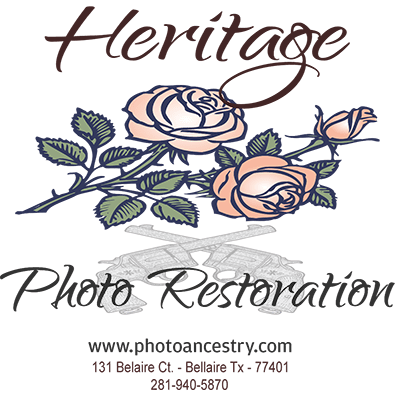
We're a local, family-owned business that will never ship your photos elsewhere. We take great pride in our work, and you can trust us to treat your family heirlooms as if they were our own.
We don't require up-front deposits on our services. You always get to see proofs before you settle on your final images, and you just pay at the end.
Our photo prints are inarguably much better than what you'll see at your average drugstore or typical printer. We only use archival-grade or museum-class paper for our prints. All prints are treated with Moab Desert Varnish to ensure longevity.
What Our Customers SayTESTIMONIALSRecent Reviews
"Heritage restored my mother's baby photo, over 100 years old, and made prints for my family. They are wonderful people who are true artists in their field. I expected to pay much more for the quality work they produced. I would recommend their services to anyone looking for quality at a more than reasonable price. Extremely satisfied!"
Edwina K., Houston
"These people are so nice. The batch of photographs I left for them were all at least 75 years old, and they came out looking just like they should look - damage free but with a great old vintage look. I will definitely go back to Heritage Photo Restoration. By the way, they have the best photo prints I've seen. Far superior to those in the various drug stores and camera shops"
Beatrice J., Houston
"Thank you, thank you!!! I can't say enough good things about Heritage Photo Restoration. They saved our priceless memories. We had several family photos that had been damaged from not being stored properly over the years. A few photos were fragile and falling apart. Others were fading, and a few had some moisture damage. They took great care with our family treasures! My wife and I were blown away with the results. They took photos that we thought were beyond repair and provided us with beautiful prints and digital copies to share with other family members. Again thank you!"
Jordan P., Richmond, TX
"To summarize my experience of trusting my family memories with Herritage photo restoration, “Amazing Quality and care!” I can not express how perfect the service he provided was. I called around Houston and had a few phone conversations with others but with Herritage it was made Simple and Reliable! My item this visit was a slightly damaged negative of my husbands great grandfather and grandmother. The product I received was two amazing meuseme photo quality prints packaged preciously with the most amazing extras ie:flash drive, beautiful logo bag, and white gloves to use while framing. I HIGHLY RECOMEND for any video or still image restoration your family might need."
Andrea B., The Woodlands, TX
"My dad was looking to have my brothers Marine picture restored after old age and it was starting to fade and he trusted Jack to take care of it. He blew his expectations out of the water. The quality of the material is amazing and his work is top tier. If you need ANY pictures restored go here, you won't be disappointed. "
Joanna B., Rosenberg, TX
"Outstanding photo restoration! Working with Jack at Heritage photo Restoration and Genealogy reminded me of doing business the old fashioned way through trust and the customer is always right belief. I gave Heritage some old, irreplaceable and poor quality photos from two and three generations ago. Sandy and Jack treated them with great care and respect and truly brought the photos to life, in such a way that the finished result made me feel I was looking at the person in the flesh. Heritage uses the highest quality products and his own genius and meticulous attention to detail to produce outstanding results."
Wendy C., West University Place



